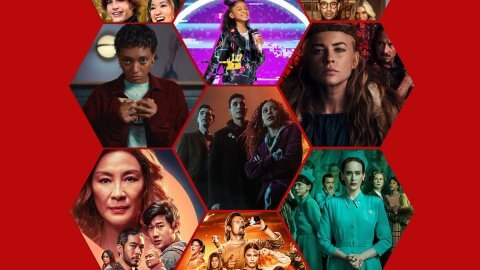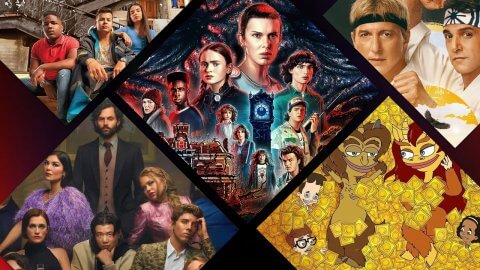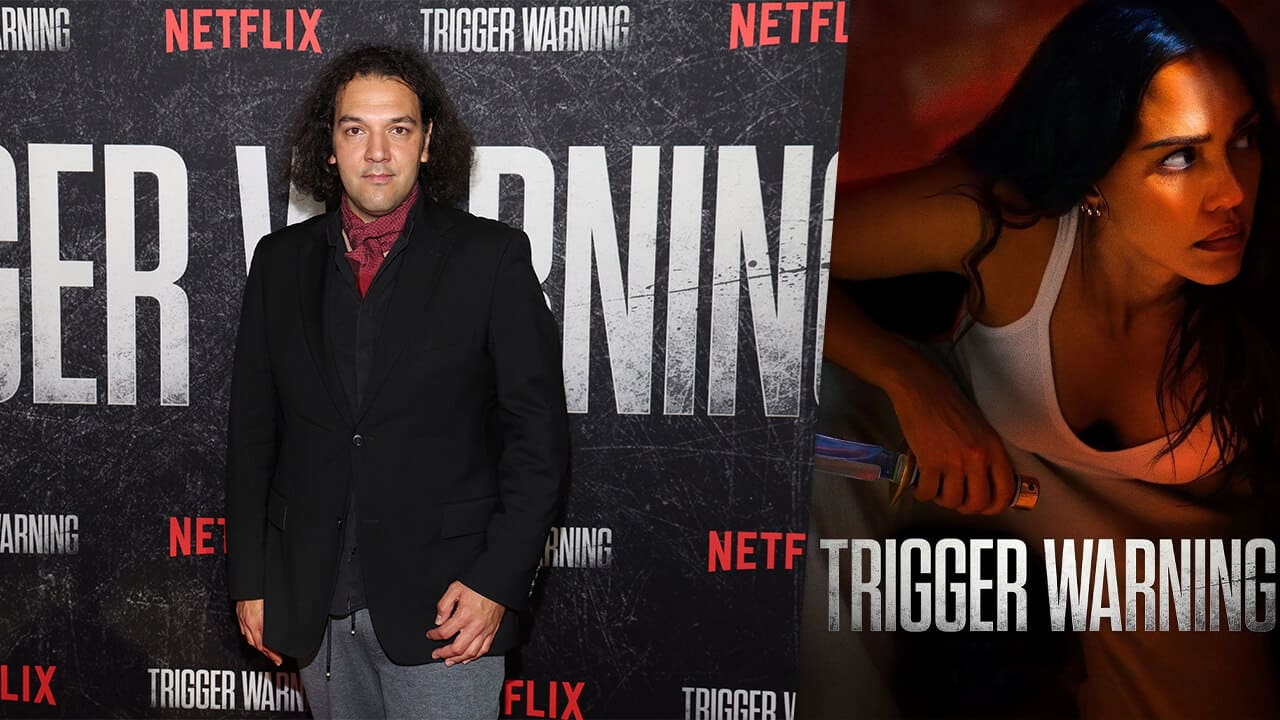
LOS ANGELES, CALIFORNIA – JUNE 11: Enis Rotthoff attends the screening of Netflix Film “Trigger Warning” at Netflix Tudum Theater on June 11, 2024 in Los Angeles, California. (Photo by Phillip Faraone/Getty Images for Netflix)
Trigger Warning recently landed on Netflix, and we had the pleasure of sitting down with composer Enis Rotthoff to discuss his score for Jessica Alba’s new action-crime thriller.
Trigger Warning, an action crime-thriller film directed by Mouly Surya, stars Jessica Alba in the lead role of Parker, a woman trying to figure out the mysterious circumstances surrounding her father’s death.
Enis Rotthoff is the composer of Trigger Warning and has composed the music for movies such as Guns Akimbo, Sun and Concrete, The Sunlit Night, The Good Neighbor, and White Orchid.

You can find the complete score of Trigger Warning by Enis Rotthoff on Spotify.
Jacob: How did you first become involved with Trigger Warning?
Enis: So I saw the film Malina, the Murderer in four acts by director Mouly Surya that premiered in Cannes, and her film blew me away. And when I heard that she was going to direct an action movie starring Jessica Alba, I was very interested in that project, my agent reached out to the production, and I got to have a meeting with her, and from there, I was the lucky one to work with her on the score.
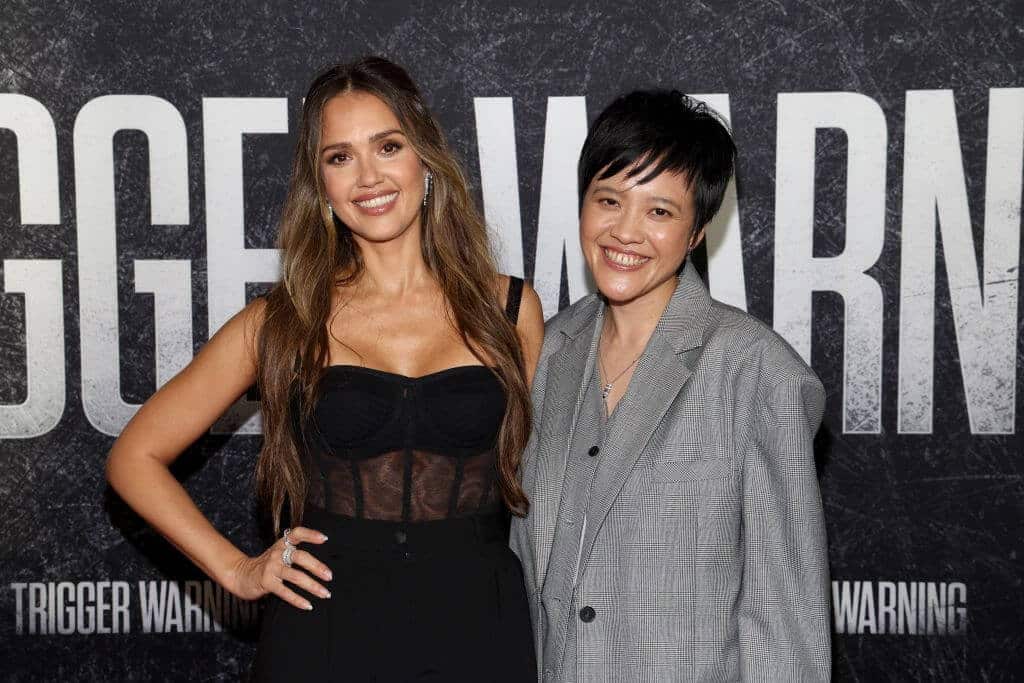
LOS ANGELES, CALIFORNIA – JUNE 11: (L-R) Jessica Alba and Mouly Surya attend the screening of Netflix Film “Trigger Warning” at Netflix Tudum Theater on June 11, 2024 in Los Angeles, California. (Photo by Phillip Faraone/Getty Images for Netflix)
Jacob: How would you describe your score for the series?
Enis: The sound of the movie is a combination of Western-inspired guitars with electronics to make it a little more fresh, adding a 52-piece orchestra with strings and brass and adding some bold percussion for having the sound of the action genre.
Jacob: When I first watched the film and listened to the score, its approach sounded big and bold.
Enis: Yes, you know, it’s interesting. We started very minimal, where we thought, let’s use as few elements as possible and see what it does to the picture. So we started almost like in a laboratory where we would use an electronic guitar or synthesizer, and we looked at what it did with the picture. And in some instances, it worked well. But then we felt like, after the experimentation phase, how about we combine the elements but make it work within the genre. And what I mean by that is that sometimes, more is more in action. Obviously, you expect a certain drive, and we try to work against that sometimes or surprise the audience, but sometimes, we just go with it as we feel that this is the energy of the scene, and this is what really drives the action. And it was, to some degree, an incredible experience where I learned what is really possible with music and how building complex layers on top of each other, having a bold sound can drive the action and give the whole experience and the journey of our hero Parker more meaning.

Pictured: Jessica Alba as Parker (left) and Tone Bell as Spider (right) – Thunder Road Pictures / Netflix
Jacob: One of the elements that I felt that came through the score was this sense of solemness. With her [Parker] being on this quest to find out why her father died under such mysterious circumstances and coming to terms with his death.
Enis: I appreciate that. We first wanted to find a sound for Parker of the lone hero, like in a Western movie, taking care of injustice and fueling her revenge, the pain of losing her father. We found an instrument called the guitar viol. It’s a custom-built instrument that I have. It’s a mix of an electronic cello and an electric guitar. We amplified it through a guitar amplifier and distorted it. So it has this kind of gritty, lonely sound, and it’s used within the movie’s emotional and action scenes. It’s not a sound the audience will recognize immediately. It’s more like a soundscape that is part of Parker’s experience. At the same time, this loneliness, let’s call it that, was contrasted with emotional Western-inspired guitar sounds and also a way of making, giving her journey purpose with beautifully arranged strings that give her emotional depth and a relationship with her father. I found this project or the film so inspiring to work on that I could add things to scenes that were not visible before, which was a beautiful experience.
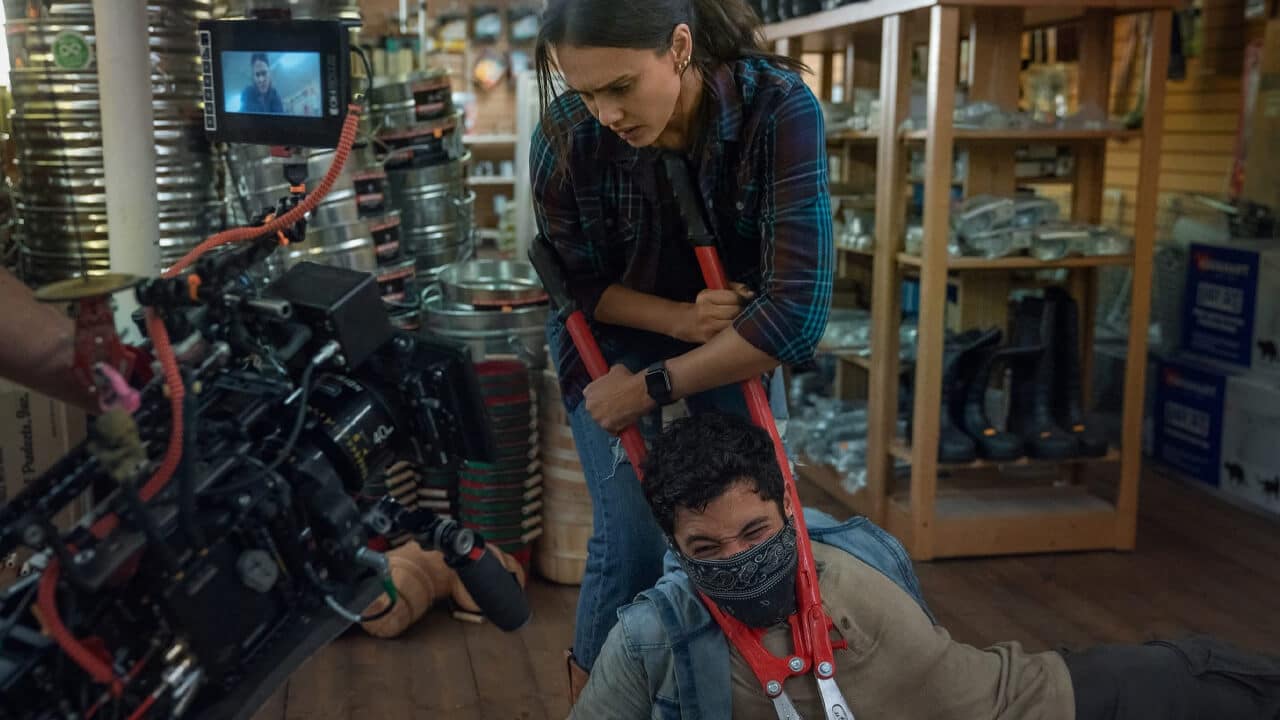
Pictured: Filming for Trigger Warning featuring Jessica Alba and Nadiv Molcho – Thunder Road Pictures / Netflix
Jacob: Well, it sounds like you had the freedom to experiment with the score. Did the producers have any input as to what they initially wanted from the score? Or were you given free reign to do with it what you will?
Enis: Well, it was a multi-step process. First, I started experimenting with director Mouly Surya, where we could develop sounds, sound palettes of different sounds we like, synthesizer sounds we like, instruments we like, melodies I created, or themes. And we would build that just the two of us. Once we felt we had something appealing to present that we were confident about, we got everybody from the team involved. It was actually a beautiful process. I love that process, exchanging with everybody and getting everybody’s point of view because it just helps you find the right tone. Also, everybody brings in their perspective, which makes it more complex. And I love that, actually. It was a beautiful collaboration with Netflix’s producers of Thunder Road and the editors, Rob G. Wilson and Chris Tonic. So, I love having ideas enhanced or enlarged by more voices.
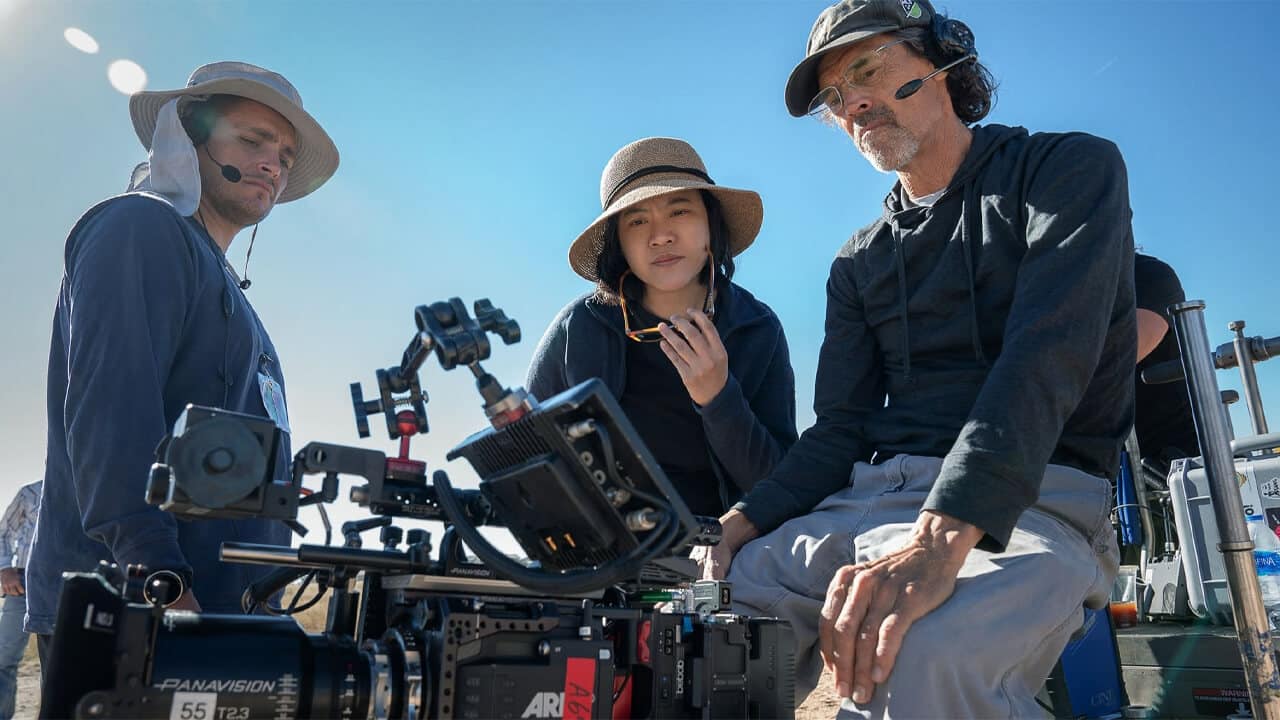
Pictured: Mouly Surya (center) behind the scenes of Trigger Warning – Thunder Road Pictures / Netflix
Jacob: So, what was the biggest challenge in composing the score for Trigger Warning?
Enis: So, there were two challenges. One challenge was that we quickly realized that the way the movie is, it needs a lot of variation, which means, yes, there is lots of action. Yes, we’re pushing the action. But how long does an idea actually last until it gets tiring for the audience? And how do you create a flow that is not foreseeable? Because music should not be smarter than the audience in this kind of movie. It should almost be a compass for the audience how to perceive a scene. And so sometimes the music would have to, there had to be many variations within an action scene. But you can’t do this all the time. Sometimes, you also have to find a pacing that allows the music to last over a couple of scenes to make it one epic moment. And I think that to balance out the variation and also create these longer pieces that make sense over the course of the movie, I would say, was the hardest challenge.
Jacob: I previously thought there was going to be a lot more action in Trigger Warning, but during those moments with Parker where she’s investigating her father’s death it definitely felt the music drove the audience in the right direction.
Enis: What I find interesting is that if you want to score the main character’s point of view, you have to take it seriously. That’s easier said than done because sometimes you do something, and you think that this is what the point of view of the main character is, but then you realize that it’s much more complex than just one emotion. It can be that she’s sad, but she’s also angry at the same time. So, how do you add these different layers? And where is it better to be more complex? And where is it better to be more simple? These are interesting choices, and what I find so beautiful about film music is that you can be the emotional compass of a character or a scene.
Jacob: During the scene when Elvis’s men are burning down Maria’s, this sense of panic comes from the music, which helps with the franticness of her action as she looks to save her most precious belongings, like the pictures of her father and family. So, rather than the music coming through as intense action, it was mixed with that sense of panic.
Enis: Thank you. It’s a very special scene as it discusses so many different topics at the same time, and to make this one flow was the challenge. We had lots of fun on that scene, actually. I enjoyed bringing all these different elements together and make it one flow.
Jacob: So, what are you working on next?
Enis: So the next film I just finished is about Steffi Graf and Andre Agassi, which I’m very excited about, as it’s a beautiful love story between the two, and it’s a movie about tennis at the same time. I recorded it [the score] in an orchestra in Budapest. And with two harps that represent the two. So, it’s an entirely different project. It’s more like a drama love story. But that’s what I love about jumping between genres and being the composer who can almost channel the film’s energy and work with different approaches.
What did you think of Trigger Warning? Did you enjoy Enis Rotthoff’s score? Let us know in the comments below!

